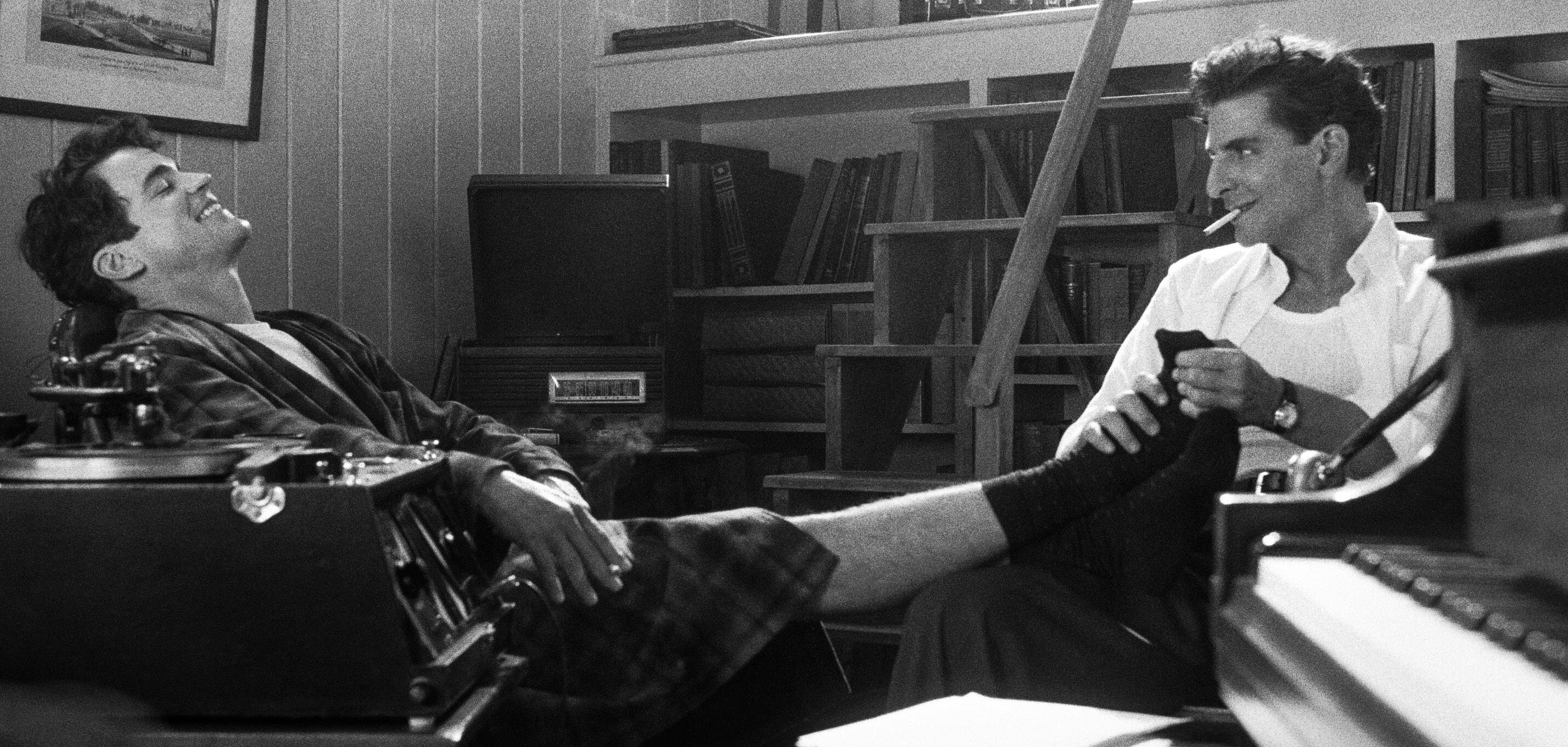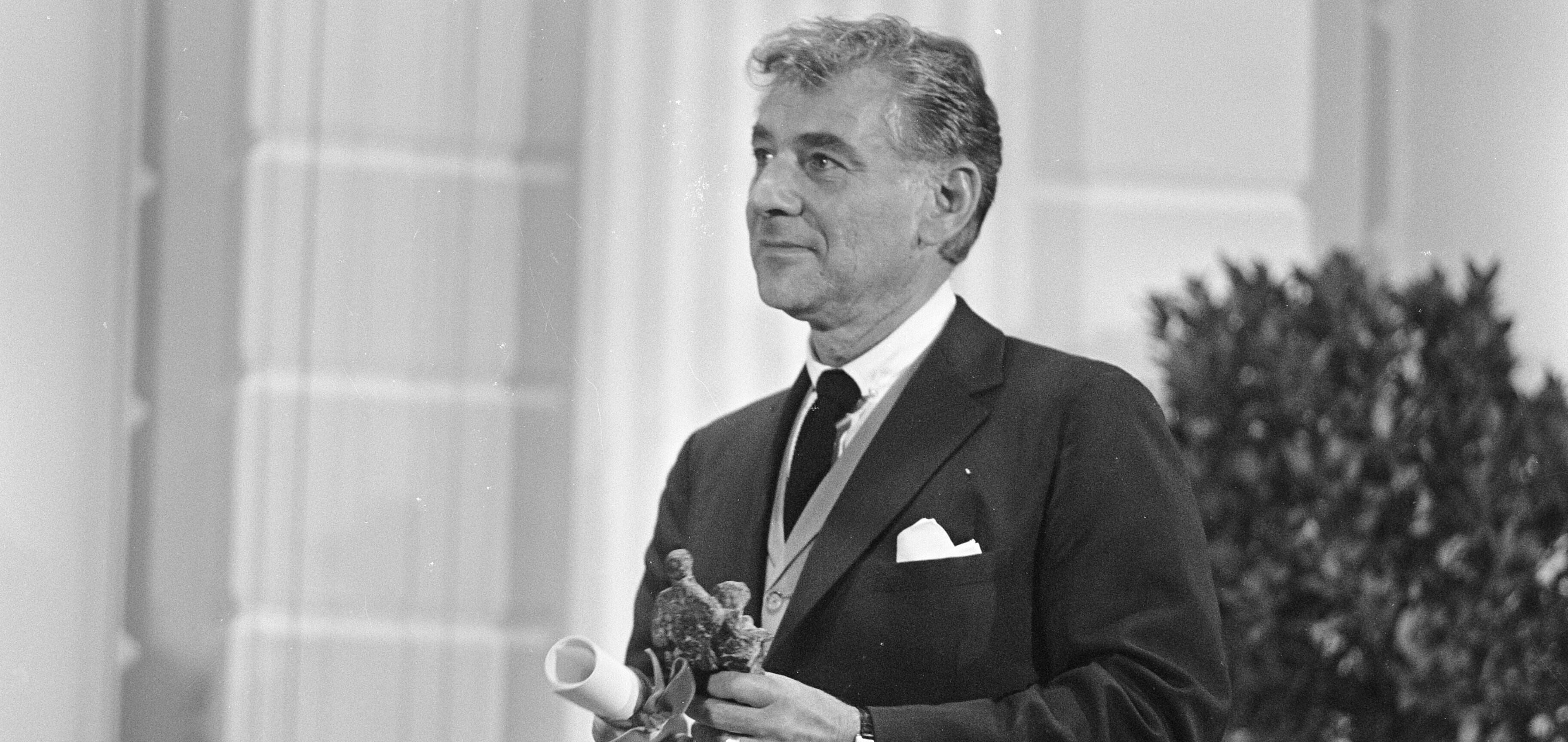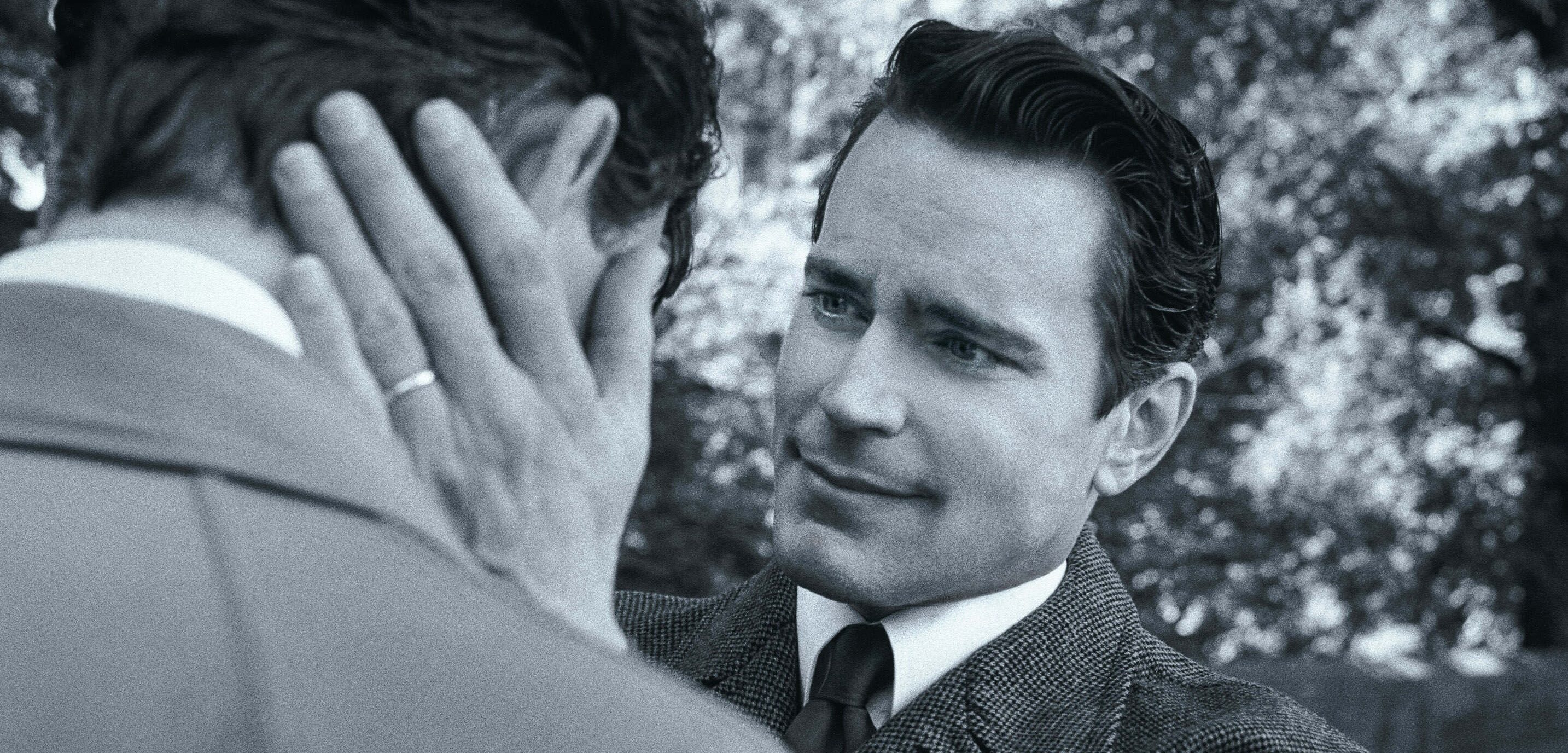Netflix’s biographical film ‘Maestro’ offers a nuanced exploration of Leonard Bernstein and David Oppenheim’s companionship. The two musicians live together while trying to establish themselves as virtuosos in New York City. When Bernstein introduces his partner Felicia Montealegre to Oppenheim, the sadness on his face is unignorable. The two “friends” eventually share an intimate moment as they both decide to lead their personal lives with their better halves. Bernstein was bisexual and he had several extra-marital relationships with men. The moving scene in the period drama does indicate that one of the men is Oppenheim. Although they didn’t explicitly present themselves as lovers, their relationship was seemingly more than just a friendship!
The Intimate Companionship Between Bernstein and Oppenheim
Leonard Bernstein and David Oppenheim became friends in the early 1940s at Tanglewood, the “summer home” of the Boston Symphony Orchestra. Oppenheim was a clarinetist studying at the Eastman School of Music at the time. The two of them bonded over music and career worries quickly. Bernstein even dedicated his “Sonata for Clarinet and Piano” to Oppenheim. The letters they both sent to each other are arguably the most significant window into their relationship. According to Nigel Simeone, who compiled and edited these letters and published them in the book ‘The Leonard Bernstein Letters,’ “Bernstein had a close, surely intimate relationship [with Oppenheim] in the early 1940s.”

Simeone’s claim is supported by Bernstein’s daughter Jamie Bernstein’s revelation that her father was bisexual. “He was bisexual and had this whole other life having relationships with men,” Jamie told People. Bernstein and Oppenheim’s correspondence paints a picture of their relationship. “Are you serene? Do you feel jittery when walls fall around you? Do you get peevish when you see the bathtub on its side? Take Oppenheim’s Little Love Tablets. Delicious to chew slowly! Nibble your Neuroses away!” the famed conductor wrote in one of the letters.
Bernstein often expressed how much he missed Oppenheim and longed for his company in these letters, especially while the latter was serving in the Army. “I just ran across, in moving, your ink copy of a little-known piece of mine called ‘Two’ which set all kind of memories, delicious and otherwise, in motion. I have a tremendous desire to see you again. Is there any possibility? Where are you? (I’m taking a chance on your last address, as of last summer.) Why did your fertile crop of letters from the army suddenly stop?” Bernstein’s letter to Oppenheim, dated October 5, 1943, reads.

During the early 1940s, Bernstein eagerly awaited Oppenheim’s discharge from the Army. “Dave, Thinking of you daily, I sometimes get the thought that you are desperately needed by symphonic organizations. Isn’t there some sort of honorable discharge that would fit your case? Isn’t a ‘line’ (and a livelihood) one of your big needs?” he wrote to his companion in November 1943. “Dave, If it weren’t for the fact that you’ll probably be out of the army and living around the corner from me by the time I return to NYC, I should be all wails and drama at this moment,” Bernstein wrote in 1945, right before Oppenheim got discharged from the Army.
It is unclear whether Felicia knew about the depth of Bernstein and Oppenheim’s relationship but she knew that her husband had affairs with men. “She knew exactly what the deal was,” Jamie told CBS News Sunday Morning about her mother knowing about her father’s bisexuality. Felicia discussed the same in one of her letters to her husband. “[…] you are a homosexual and may never change – you don’t admit to the possibility of a double life, but if your peace of mind, your health, your whole nervous system depend on a certain sexual pattern what can you do?” she wrote in late 1951 or 1952, as per ‘The Leonard Bernstein Letters.’
Read More: What is Bradley Cooper’s Accent in Maestro?


You must be logged in to post a comment.